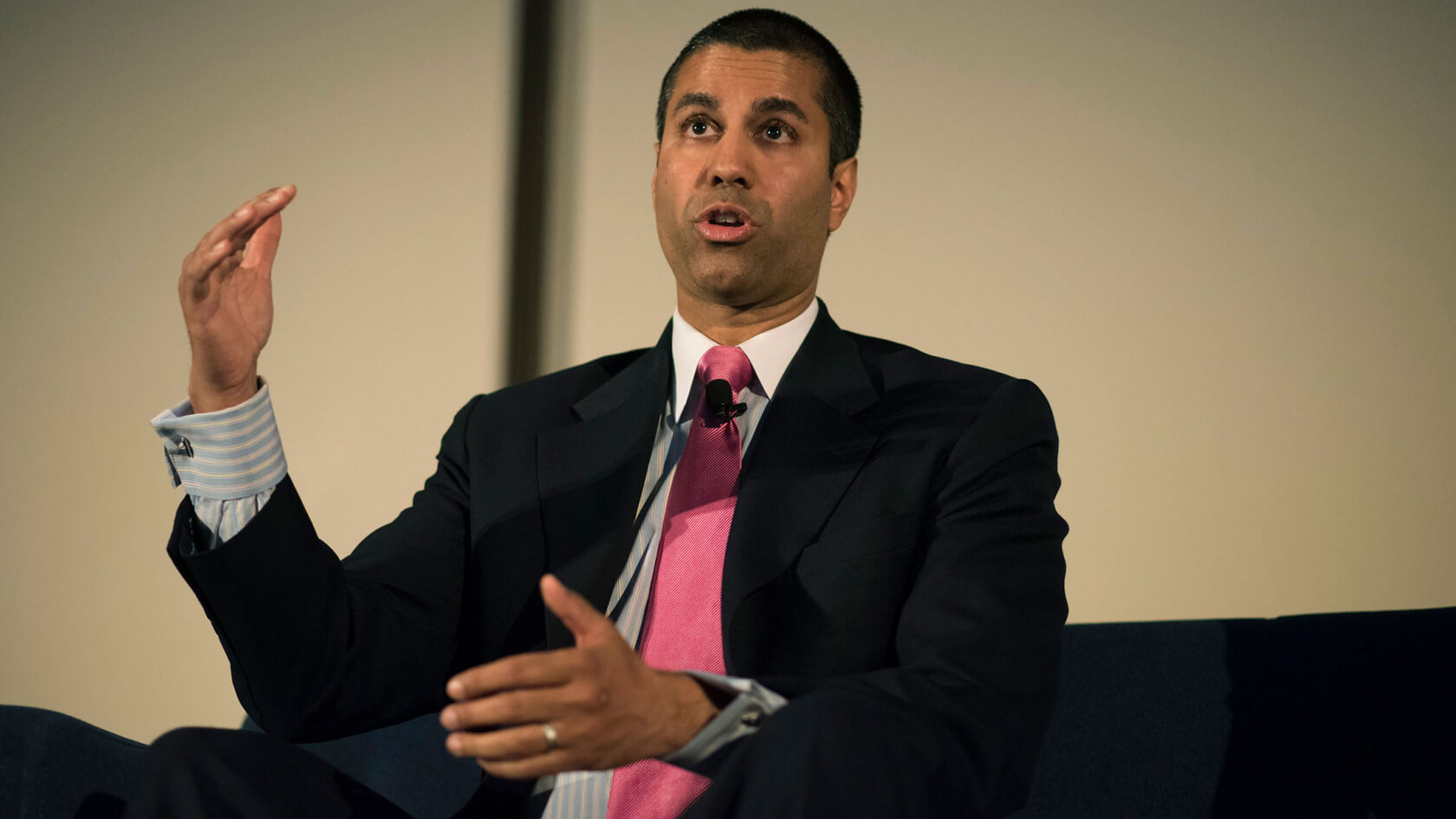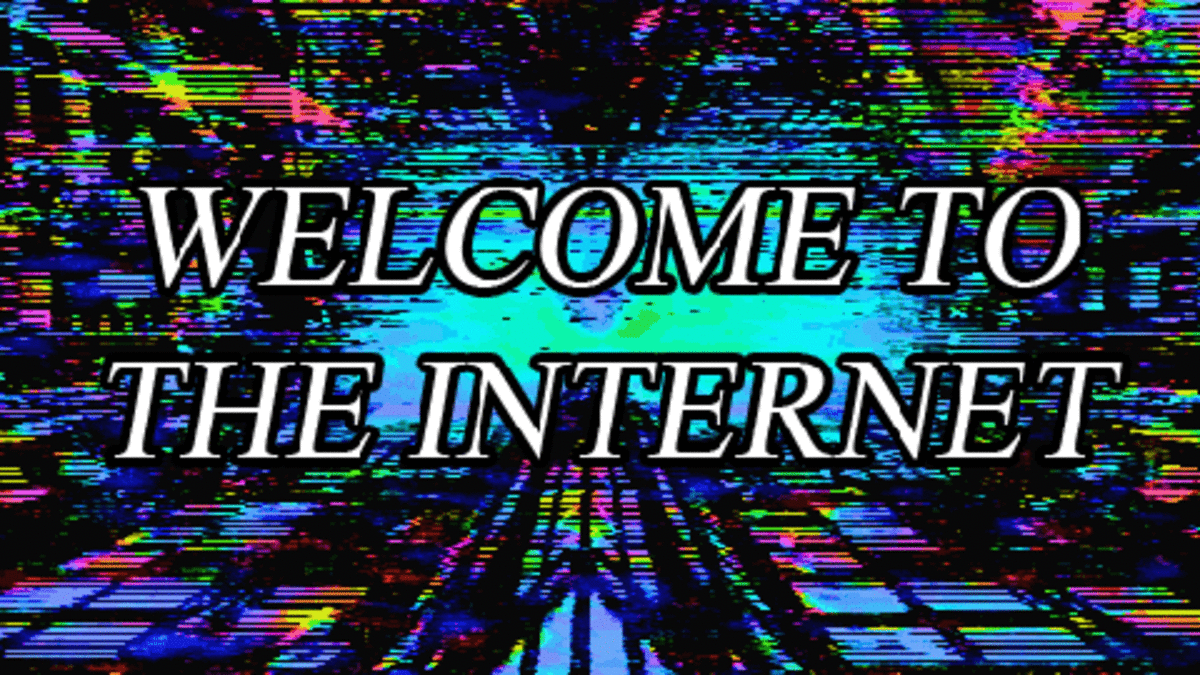
To say Federal Communications Commission (FCC) Chair Ajit Pai’s plan to deregulate broadband providers is unpopular would be an understatement. The public overwhelmingly opposes the move, and several prominent celebrities and tech companies have been very vocal on the matter. Kumail Nanjiani, Mark Ruffalo, Cher, and others, have all spoke out against Pai’s move.
The FCC head defended his stance during an event in Washington proclaiming that the criticisms of his plan have been nothing but “hot air,” and “clickbait” media. “Given that some of the more eye-catching critiques have come from Hollywood celebrities, whose large online followings give them out-sized influence in shaping the public debate, I thought I’d respond directly to some of their assertions.”
#NetNeutrality is an issue that will affect every single person here. It is not a partisan issue. We will never go back to a free internet. https://t.co/OW1tIVz0B1
— Kumail Nanjiani (@kumailn) November 21, 2017
Pai then went on to provide long-winded rebuttals to individual criticisms voiced by named celebrities. For example, after pointing out that Kumail Nanjiani tweeted, “We will never go back to a free internet,” the chairman went on a three-minute explanation on why he was wrong and how “light-touch regulation” was better than “heavy-handed micromanagement.” He repeated this process with at least four other outspoken figures including George Takei and Alyssa Milano.
I know. We’ve faced a lot of issues threatening our democracy in the last year. But honestly, the @FCC and @AjitPaiFCC’s dismantling of #NetNeutrality is one of the biggest.
— Alyssa Milano (@Alyssa_Milano) November 21, 2017
THIS IS A HUGE DEAL.
And yet #SaveNetNeutrality isn’t trending. https://t.co/LgvSJ99RLv
High-profile tech corporations that oppose his idea, like Facebook, Twitter, Google, and others were not ignored either. He was particularly harsh against Twitter saying, “Now look: I love Twitter, but let’s not kid ourselves; when it comes to a free and open internet, Twitter is a part of the problem. The company has a viewpoint and uses that viewpoint to discriminate.”
(Pai) reiterated multiple times how his proposal merely goes back to pre-2015 light regulation...
His stance is that tech companies are playing the victim, crying about net neutrality and wanting broadband providers to be regulated as to not restrict them, but are unwilling to face those same non-discriminatory policies themselves.
He reiterated multiple times how his proposal merely goes back to pre-2015 light regulation — a time when the internet was not suffering any of the “absurd” injustices that opponents are suggesting will come with his plan. He adds that his proposal will also require transparency from providers and that the Federal Trade Commission will be the watchdog that will step in if unfair practices arise.
Pai closed by saying, “So, when you get past all the wild accusations, fear mongering, hysteria; here’s the frankly boring bottom line: the plan to restore internet freedom would return to the light-touch, market-based approach under which the internet thrived.”
Counterargument...
Not all disagree with Pai's conclusions, and there are sound arguments in support of reclassification back to Title I arrangements.
Ben Thompson, an independent tech and business analyst, sees the rollback of the 2015 regulations as a prudent move that will not harm the industry. He maintains that Title I rules have been effective in preventing "bad behavior" of providers since 1994 when ISPs were first classified under those regulations.

For example, Thompson points to a case from 2005 where internet provider Madison River Communication (MRC) was blocking ports used for VoIP to promote its own service. It was a clear violation of net neutrality rules under Title I, of which Vonage filed a complaint over. The FCC stepped in and obtained a consent decree against MRC, fined them $15,000, and made the company agree not to conduct its business in such a manner again. Madison River complied, and there was never another incident of ISP port blocking from them or any other ISP since.
Thompson also argues that there are costs to heavy regulation that more often than not exceed the provided benefits.
"Any regulatory decision — indeed, any decision period — is about tradeoffs," he said. "To choose one course of action is to gain certain benefits and incur certain costs, and it is to forgo the benefits (and costs!) of alternative courses of action. What makes evaluating regulations so difficult is that the benefits are usually readily apparent — the bad behavior or outcome is, hopefully, eliminated — but the costs are much more difficult to quantify."
In other words, more burdensome regulations should only be pursued if the situation demands it.
"There is no evidence of systemic abuse by ISPs governed under Title I, which means there are no immediate benefits to regulation, only theoretical ones," he says.
Up until 2015, there had been no fast-laning, tier structuring, or any of the other things that those regulations are meant to prevent. The reclassification to Title II was a preemptive strike against a threat that had not materialized. Furthermore, with more government regulation comes more cost, whether it is from the regulated businesses passing on higher costs to the consumer, or inflated taxes to cover the excessive oversight.
Thompson suggests a "wait-and-see" approach. Instead of preemptively shackling providers when nothing has been done to threaten net neutrality, he thinks we should allow ISPs to continue under Title I classification. If it is seen that Title I oversight is somehow failing, we can always readopt the Title II regulations.
"I am amenable to Congress passing a law specifically banning ISPs from blocking content, but believe that for everything else, including paid prioritization, we are better off taking a 'wait-and-see' approach; after all, we are just as likely to 'see' new products and services as we are to see startup foreclosure. And, to be sure, this is an issue than can — and should, if the evidence changes — be visited again."
He insists that the rollback will not leave us without recourse should ISPs decide to start taking advantage of us.
There is currently a petition hosted on the White House website calling for Mr Pai's resignation. The appeal requires at least 100,000 signatures to be considered for redress. It currently has 100,469.
The FCC will vote on the proposal on December 14. It is expected to pass 3-2 along party lines.
Update (11/28, 11pm): This article was updated to provide a counterpoint to the argument and promote thoughtful discussion.
https://www.techspot.com/news/72079-ajit-pai-lashes-out-high-profile-net-neutrality.html